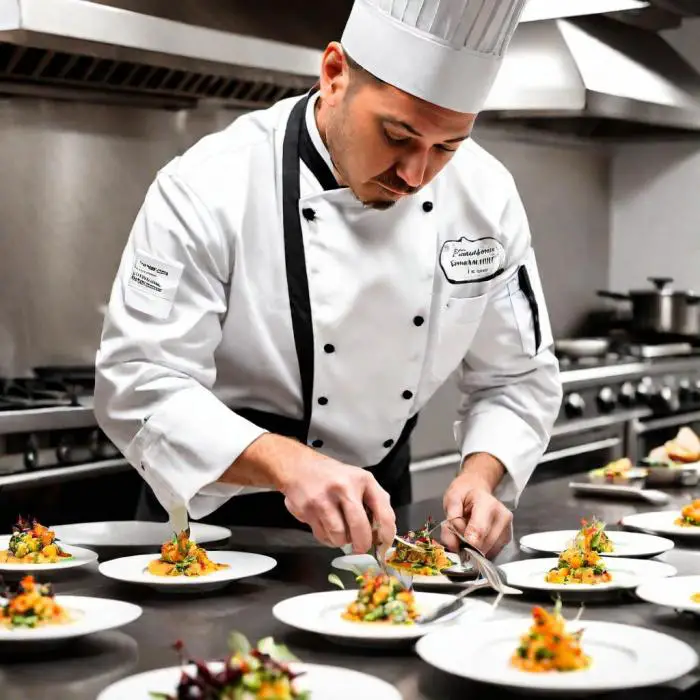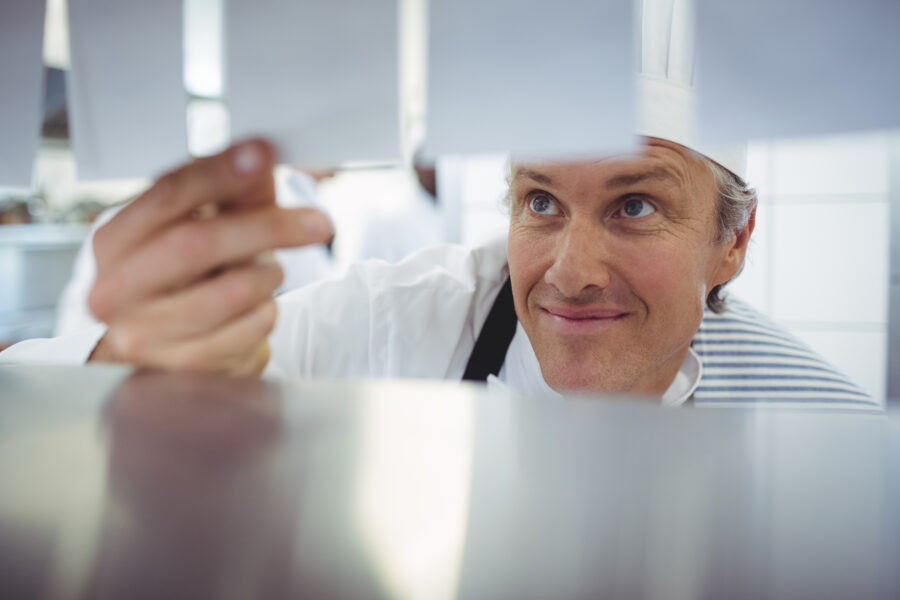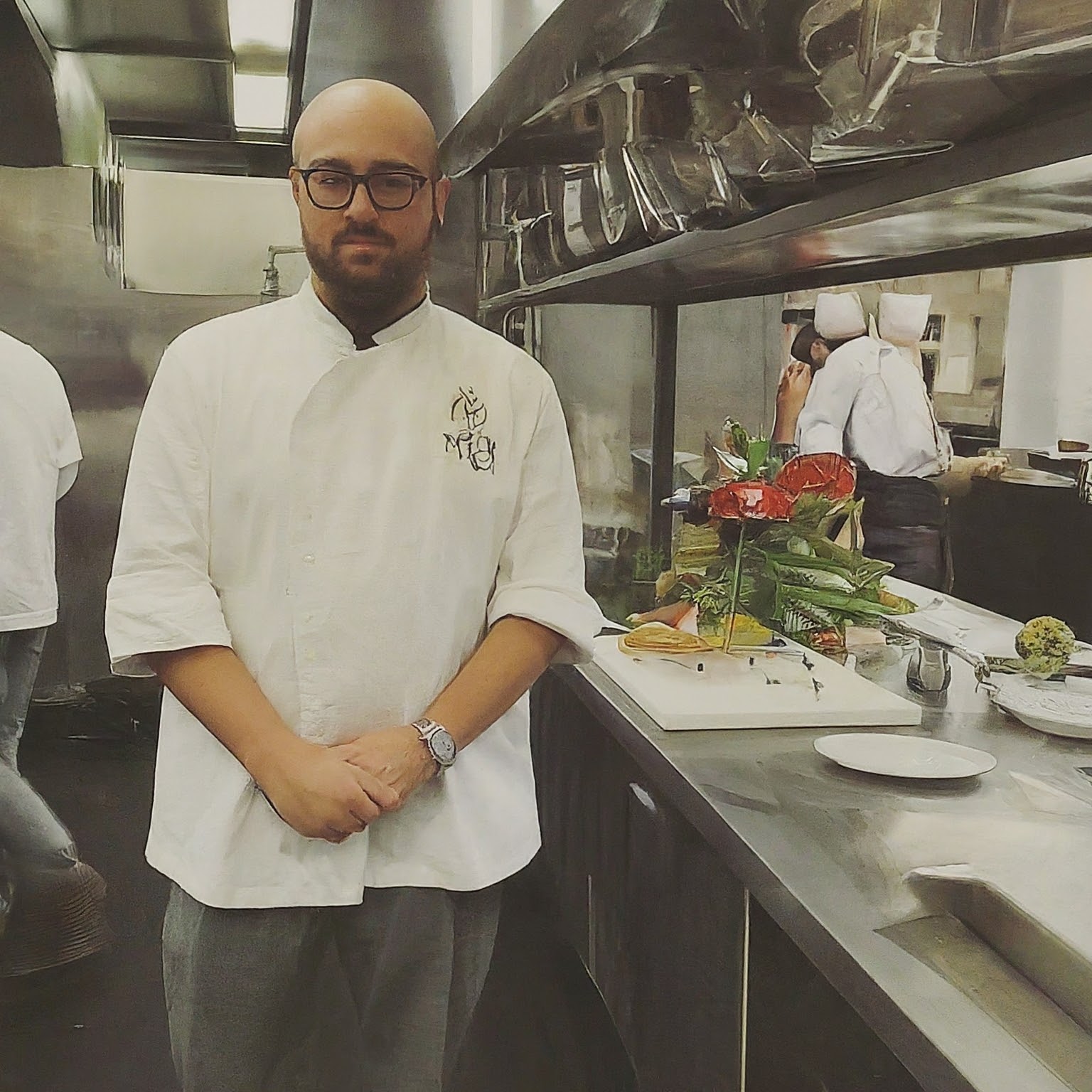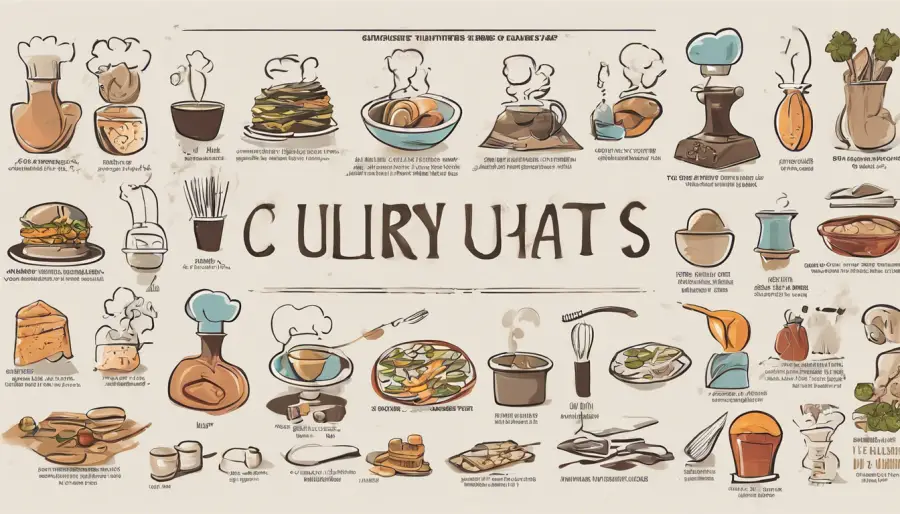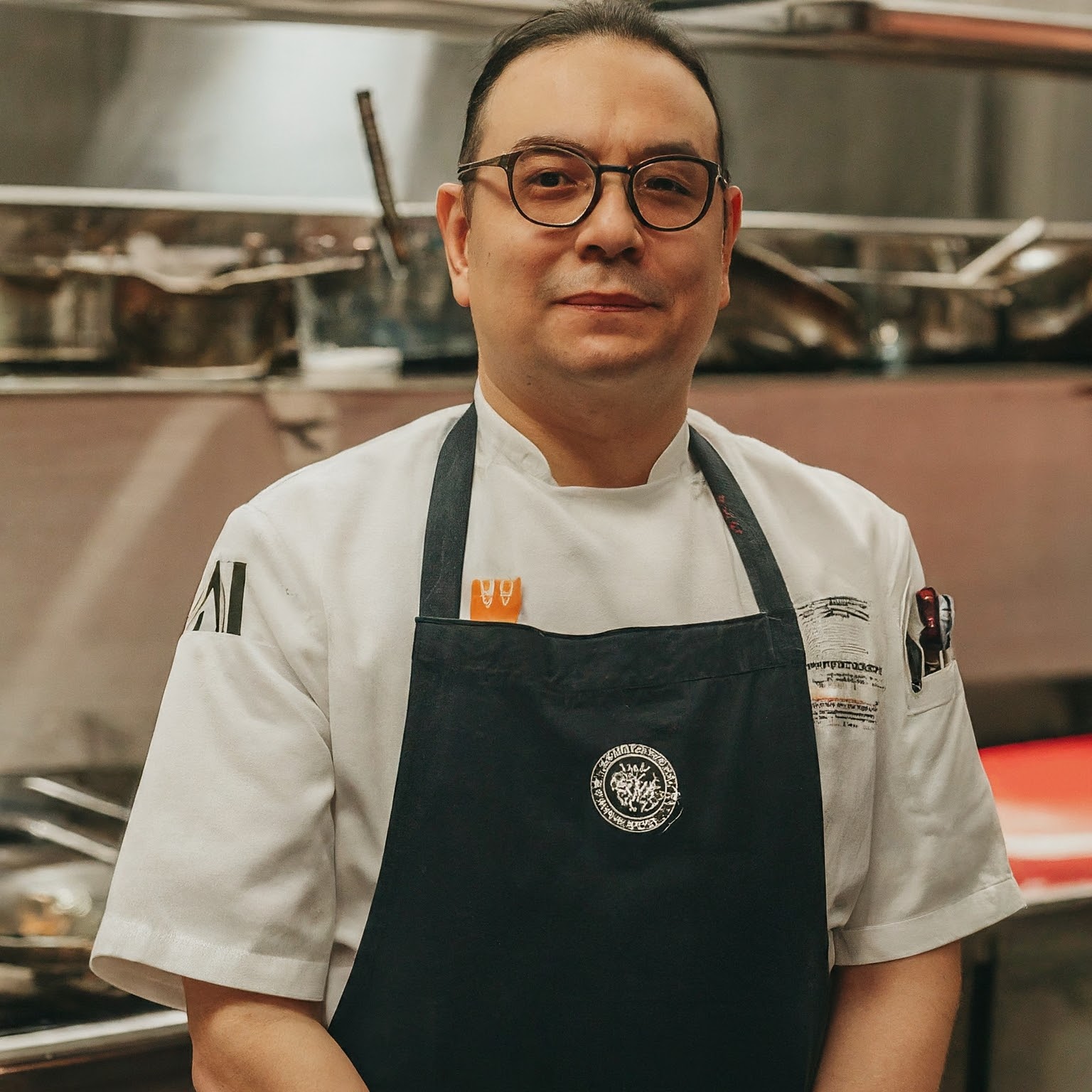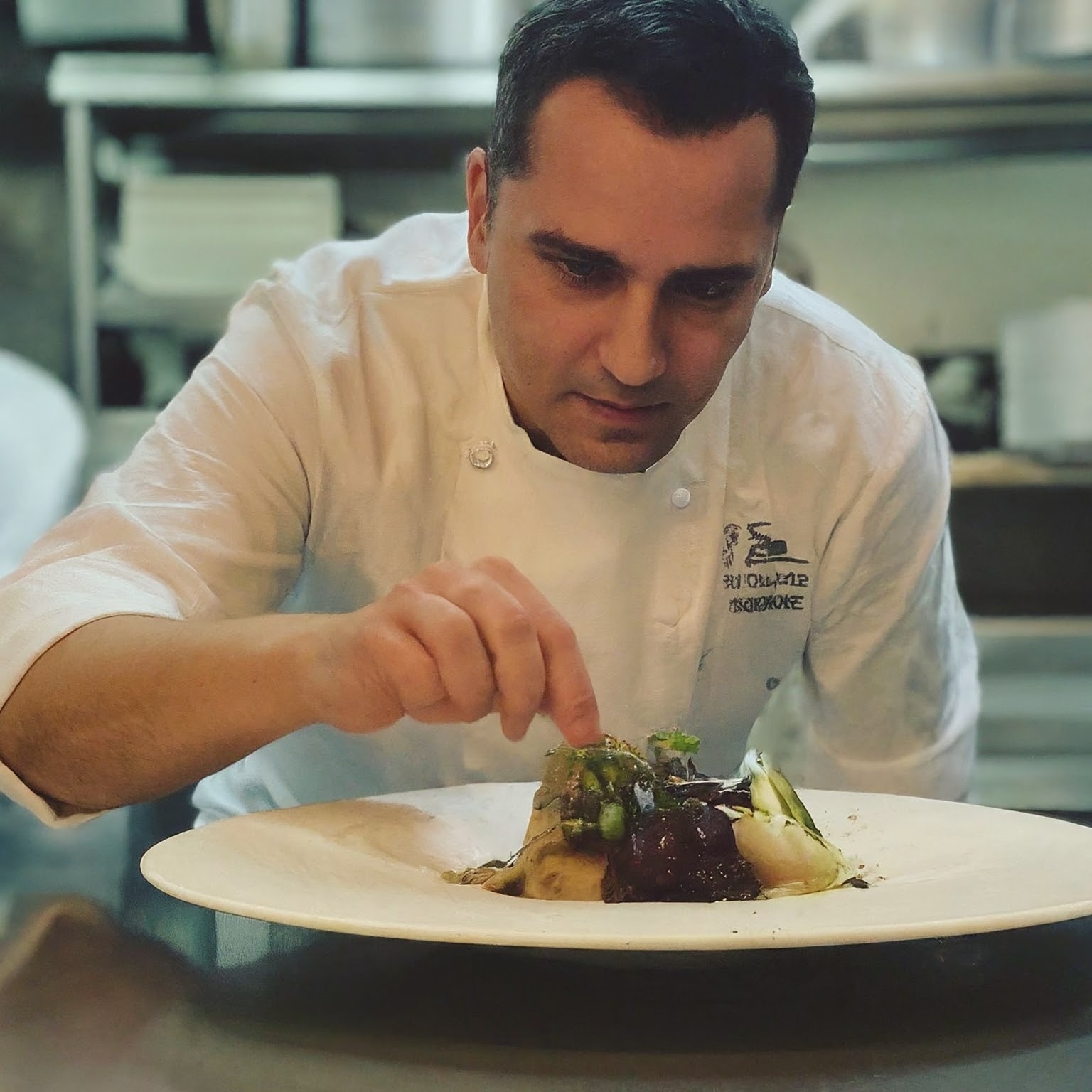
An executive chef plating a dish.
In the world of culinary arts, the executive chef stands as a beacon of creativity, skill, and leadership.
Their vast knowledge encompasses a diverse array of recipes, innovative techniques, and captivating stories that inspire and educate both their teams and diners.
This article delves into the essential knowledge an executive chef must possess, exploring their mastery of recipes, culinary techniques, and the stories that shape their culinary journey.
Introduction
The role of an executive chef extends far beyond the confines of the kitchen. They are the visionaries who craft memorable dining experiences through their expertise in recipes, mastery of techniques, and the rich narratives that bring dishes to life.
Understanding the depth of an executive chef’s knowledge offers valuable insights into the artistry and precision required to excel in this demanding role.
Key Takeaways
- Diverse Recipe Knowledge: Mastery of a wide range of recipes from different cuisines.
- Innovative Techniques: Proficiency in advanced culinary techniques and modern cooking methods.
- Storytelling: The ability to weave compelling stories into dishes, enhancing the dining experience.
- Continuous Learning: Commitment to ongoing education and staying current with culinary trends.
- Cultural Awareness: Understanding and respecting the cultural significance of various dishes.
Table Chart: Key Areas of Executive Chef Knowledge
| Knowledge Area | Description |
|---|---|
| Diverse Recipe Knowledge | Expertise in creating a wide range of dishes from various culinary traditions. |
| Innovative Techniques | Mastery of advanced cooking techniques and modern culinary methods. |
| Storytelling | Ability to incorporate narratives that enhance the dining experience and connect with diners. |
| Continuous Learning | Commitment to staying updated with the latest culinary trends and innovations. |
| Cultural Awareness | Understanding the cultural contexts and significance of different recipes and ingredients. |
Diverse Recipe Knowledge
A successful executive chef must have a comprehensive understanding of a wide variety of recipes. This includes:
- Classical Recipes: Mastery of traditional recipes from French, Italian, and other foundational cuisines.
- Contemporary Dishes: Creating innovative dishes that reflect current culinary trends and customer preferences.
- Specialty Diets: Crafting recipes that cater to dietary restrictions and preferences, such as vegan, gluten-free, and low-carb options.
For instance, an executive chef might expertly prepare a classic Beef Bourguignon while also innovating a modern vegan alternative using mushrooms and plant-based proteins.
This ability to bridge the old and the new is a hallmark of their culinary prowess.
Innovative Techniques
Modern executive chefs are well-versed in advanced cooking techniques that elevate their dishes. Some key techniques include:
- Sous-Vide: Cooking food in vacuum-sealed bags at precise temperatures in a water bath, resulting in perfectly cooked, tender dishes.
- Molecular Gastronomy: Using scientific principles to create unique textures and presentations, such as foams, gels, and spheres.
- Fermentation: Employing ancient preservation methods to develop complex flavors in foods like kimchi, sauerkraut, and sourdough bread.
By mastering these techniques, executive chefs can introduce diners to new textures and flavors, enhancing the overall dining experience.
Storytelling
The ability to tell a compelling story through food is a powerful tool for an executive chef. Stories can:
- Enhance the Dining Experience: Narratives about the origins of a dish or the inspiration behind its creation can make the meal more engaging and memorable.
- Educate Diners: Sharing the history and cultural significance of ingredients and recipes can deepen diners’ appreciation for the food.
- Build a Connection: Personal stories about the chef’s culinary journey can create a more intimate and relatable dining experience.
For example, an executive chef might share the story of how a family recipe passed down through generations inspired a signature dish on the menu.
This not only adds a personal touch but also enriches the overall dining experience.
Continuous Learning
The culinary world is ever-evolving, and successful executive chefs are committed to continuous learning. This involves:
- Staying Updated with Trends: Keeping abreast of the latest culinary trends, ingredients, and techniques.
- Professional Development: Participating in workshops, culinary courses, and industry events to refine skills and gain new knowledge.
- Experimentation: Regularly experimenting with new ingredients and techniques to innovate and stay ahead of the competition.
Cultural Awareness
Cultural awareness is crucial for an executive chef, as it allows them to:
- Respect Traditions: Honor the cultural significance and traditional preparation methods of various dishes.
- Create Authentic Experiences: Deliver authentic culinary experiences that accurately represent different cuisines.
- Promote Diversity: Celebrate and promote culinary diversity by incorporating dishes from around the world into their menus.
For instance, an executive chef might incorporate traditional Mexican techniques and ingredients to create an authentic mole sauce, while also explaining its cultural importance to diners.
Key Takeaways:
- Diverse Recipe Knowledge: Mastery of a wide range of dishes from different culinary traditions.
- Innovative Techniques: Proficiency in advanced cooking methods like sous-vide and molecular gastronomy.
- Storytelling: The ability to enhance dining experiences through compelling narratives.
- Continuous Learning: Commitment to staying current with culinary trends and ongoing professional development.
- Cultural Awareness: Understanding and respecting the cultural significance of various dishes.
Aspiring chefs and industry professionals can look to these essential qualities as a roadmap for success, ensuring they remain at the forefront of culinary innovation and excellence.
Conclusion
The knowledge and skills of an executive chef extend far beyond cooking. Their expertise in diverse recipes, innovative techniques, storytelling, continuous learning, and cultural awareness are essential for creating exceptional dining experiences.
By mastering these areas, executive chefs not only elevate their craft but also inspire and educate their teams and diners alike.



